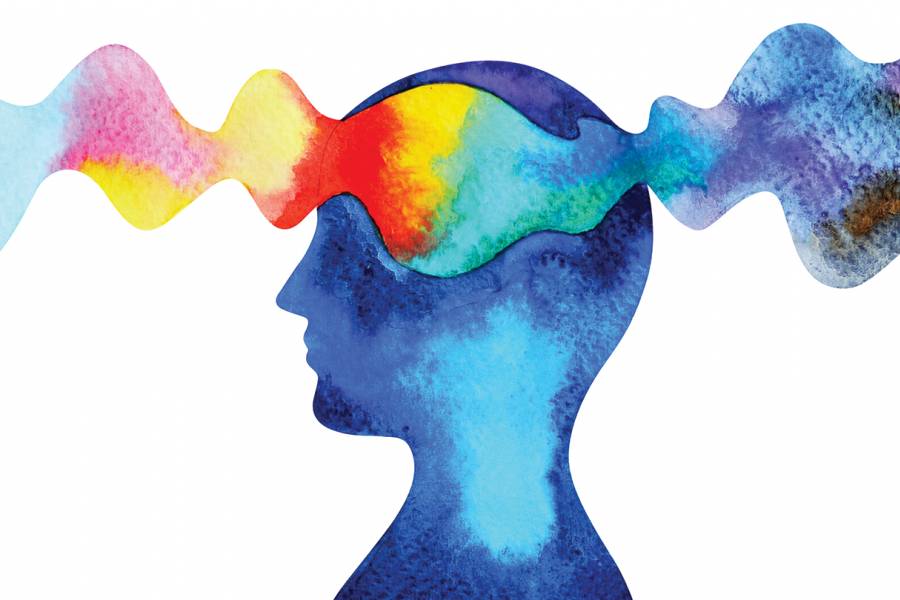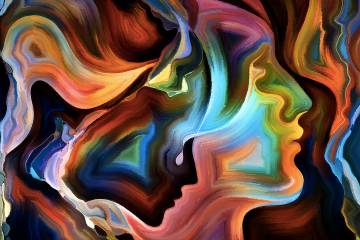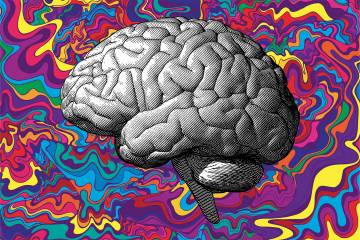Roland Griffiths and Alan Davis did not expect that their research about what a certain psychedelic does to the brain would force them to confront questions that push the limits of science. But in a study published in the May issue of the Journal of Psychopharmacology, the researchers discovered that people who had previously identified as atheists described encountering a "benevolent entity" upon inhaling the chemical substance N,N-dimethyltryptamine, or DMT.
"There was something so profound and special and meaningful about those experiences and their power to transform people's lives," says Davis, an adjunct assistant professor at the Johns Hopkins Psychedelic Research Unit. "This work opened up the possibility for me that there's a lot more out there we haven't yet been able to understand scientifically."
For this study, which expands on a paper published last year in PLOS One, the scientists surveyed 2,500 users of DMT who had encountered an "autonomous entity" after inhaling it.
The results, researchers said, were striking. The vast majority of the respondents said DMT brought them into contact with a "conscious, intelligent, benevolent, and sacred entity," most commonly described as a "being" or "guide," in an interaction that oozed joy, trust, love, and kindness. Eighty percent reported that the experience had fundamentally altered their perception of reality, and 72% said that the entity continued to exist after the experience "in a different plane of reality." Perhaps most startling was that more than half of those who had previously self-identified as atheists—28% of the sample—described some type of belief in a higher power or God after taking DMT, according to Griffiths, director of the Johns Hopkins Center for Psychedelic and Consciousness Research.
DMT, known to many as "the spirit molecule," is the primary active molecule in ayahuasca, a plant-based psychedelic. It occurs naturally in many plants and animals and is also endogenous to the human brain, where it activates receptors for serotonin, the "happiness hormone" that regulates our mood, cognition, memory, and more.
But we are only scratching the surface of what DMT can tell us, researchers say.
"DMT's natural function in the brain has been related to dreaming and near-death experiences," Davis says. "Some people even go so far as to say that it might get released in the brain as we die. Others say it's a very old system that is not used in the same way it was used in early times of human development. We're pretty much still in the dark."
Since 2006, the Hopkins center—the first of its kind in the United States—has published more than 60 peer-reviewed articles on the once taboo topic of psychedelics. In just the past six months, the center's faculty have published 10 articles on topics ranging from their therapeutic potential to treat addiction to their role in understanding human consciousness. "There's a ton of work to be done to fully understand them," Griffiths says.
And now, Davis says, we are tapping into how these drugs can produce experiences that are spiritually significant to the user, offering insight that endures days, weeks, and sometimes years later.
"Our psychedelics research," Griffiths says, "is tapping into the existential mystery of what it is that we are doing here."
Posted in Science+Technology
Tagged religion, psychedelics, roland griffiths, dmt, psychopharmacology












